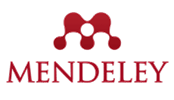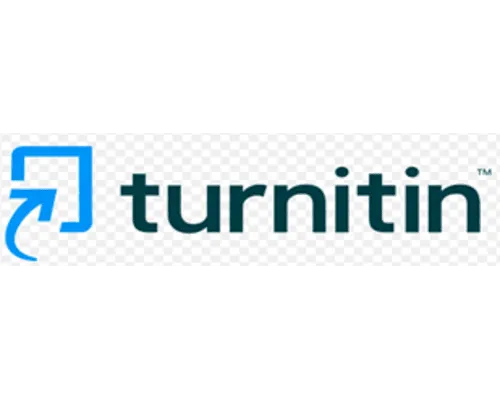

When you cite a source, you give credit in your writing for using someone else's words, ideas, figures, or images. .
Citations are like a unique code for a book, article, or website. They help people find the source of information. You can usually find them at the end of a book or article.
Citations have important details that help identify and locate publications, such as:
Citations can appear in various formats and styles, depending on your citing and the guidelines you follow. Make sure to use the correct style guide for your specific requirements.
Here is an example of how to cite an article using four different citation styles. Pay attention to the similar elements mentioned earlier.
| Author | R. Langer |
| Article Title | New Methods of Drug Delivery |
| Source Title | Science |
| Volume and issue | Vol 249, issue 4976 |
| Publication Date | 1990 |
| Page numbers | 1527-1533 |
| American Chemical Society (ACS) style: | Langer, R. New Methods of Drug Delivery. Science 1990, 249, 1527-1533. |
| IEEE Style | R. Langer, "New Methods of Drug Delivery," Science, vol. 249, pp. 1527-1533, SEP 28, 1990 |
| American Psychological Association (APA) style: | Langer, R. (1990). New methods of drug delivery. Science, 249(4976), 1527-1533. |
| Modern Language Association (MLA) style: | Langer, R. "New Methods of Drug Delivery." Science 249.4976 (1990): 1527-33. |
These websites can assist you in citing the most common sources in various citation styles.
Build a bibliography instantly from any computer or device without creating an account or installing any software. This convenient feature is made possible by the team behind Zotero, a powerful and user-friendly research tool that helps you collect, organize, cite, and share research. With Zotero, you can seamlessly gather and manage your research materials while creating citations and bibliographies in various citation styles.
Online citation generator
Create a free account that includes iOS and Android apps and browser extensions to make citations easy.

Zotero is a free, easy-to-use tool to help you collect, organize, cite, and share your research sources. A personal research assistant: Zotero is a really useful tool for doing research. It can easily save things like articles, news stories, or books from the internet into your own library. It works with lots of different websites, so you can save stuff from all over the place.
"Zotero helps you keep all your research in one easy search place. You can add PDFs, pictures, audio and video files, website snapshots, and more. Zotero then makes it simple to find what you need by searching through all the text in your library."
Know more about:
Installation InstructionsOfficial Website: https://www.zotero.org

Mendeley is a tool that helps researchers keep track of their sources and collaborate with others. It's like a big library where you can find millions of research papers, connect with other researchers, and join in on discussions.
Cite as you write: Generate citations and bibliographies in various journal styles with just a few clicks. For your convenience, we've ensured Mendeley's Citation Plugin is fully compatible with Word (including Word for Mac) and LibreOffice. It also supports BibTeX export for use with LaTeX.
Annotate as you read: Easily add your thoughts on documents in your library, even from mobile devices. For ease of collaboration, you can also share documents with groups of colleagues and annotate them together.
Organize your content: Import papers and other documents from your desktop, your existing libraries or websites with ease. Mendeley automatically captures information like authors, titles, and publishers, which makes organization and browsing easy.
Official Website: https://www.mendeley.com

Turnitin is a widely recognized plagiarism detection software used by educational institutions, researchers, and publishers to ensure the originality of written content. It works by comparing submitted documents against an extensive database of academic papers, websites, and other online materials to identify potential instances of plagiarism. Turnitin provides detailed similarity reports, highlighting matching text and the sources of the matches and offering educators the ability to assess the originality of student submissions. Beyond plagiarism detection, Turnitin also offers tools for grading, feedback, and improving writing skills, such as its grammar-checking features. It plays a key role in promoting academic integrity and fostering responsible writing practices.

Drillbit software is an advanced plagiarism detection tool designed to assist academic institutions, researchers, and educators in identifying and preventing plagiarism in written content. It works by scanning documents against a vast database of sources, including academic papers, websites, and other online content, to detect similarities and potential plagiarism. Drillbit provides detailed reports highlighting matched content, offering insights into the percentage of similarity and the specific sources where matches were found. The software supports multiple file formats and offers customizable features, making it a versatile solution for maintaining academic integrity and promoting originality in research and educational writing.
e-Thesis Submission
Please download Annexures I, II, and III, available above, and fill out the desired information in these forms. Sign in and enclose it with a soft copy (If annexures have already been included in the thesis/dissertations and are part soft copy, may ignore this).
Copy of duly filled ‘Thesis/Dissertation Authentication Certificate’ (Annexure-I) to be signed by the research scholar that the thesis/dissertation contained in the soft copy is complete in all respects and is the same as submitted in print and has been checked for plagiarism using TURNITIN.
The ‘Thesis/dissertation Metadata Form’ (Annexure-II) is duly filled by the research scholar.
Copy of ‘Consent Form for Digital Archiving’ (Annexure-III) duly signed by the research scholar.
(2) The soft copy should contain the following: